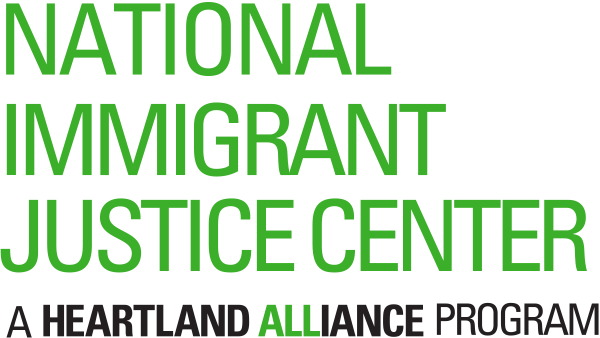Statement of Mary Meg McCarthy, Executive Director, National Immigrant Justice Center
Heartland Alliance’s National Immigrant Justice Center (NIJC) applauds Representatives Hakeem Jeffries (D-NY), Karen Bass (D-CA), Lucille Roybal-Allard (D-CA), and Judy Chu (D-CA) for sponsoring “The Vulnerable Immigrant Voice Act of 2014,” a bill announced today which would provide appointed legal counsel for some of the most vulnerable individuals in immigration removal proceedings: unaccompanied children and people with serious mental disabilities.
These four elected officials understand that America’s commitment to due process and to safeguarding human rights begins with providing legal counsel to the most vulnerable people among us who cannot navigate the immigration maze alone. I urge their colleagues in Congress to support this important legislation.
The U.S. Senate’s comprehensive immigration reform bill, S. 744, which was introduced last year, and its House counterpart, H.R. 15, provided legal counsel to vulnerable immigrants in immigration court; but both bills stalled in Congress.
Ongoing violence and organized crime in Central America—primarily in El Salvador, Guatemala, and Honduras—is forcing thousands of people, including an increasing number of women and children, to leave their home countries in search of safety. Last spring, a federal judge in Los Angeles ruled that authorities must provide attorneys to detained individuals with serious mental disabilities that affect their ability to represent themselves. The judge recognized that appointed counsel “is the only means by which [detained individuals] may” defend themselves.
Providing legal counsel to immigrants not only ensures due process protections, but also is efficient and cost-effective. Studies show that when people in immigration court know their rights and understand the process, they spend fewer days in immigration court seeking continuances to find counsel and do not require as much time in court to have complex immigration laws and procedures explained to them. Immigration courts across the country suffer extensive backlogs, which delay justice and cost the government $2 billion per year as it detains individuals awaiting court hearings. For example, in Chicago, the fourth most backlogged immigration court, the next available court dates are in 2016.
How can the United States return adults and children to violence in their home countries without a fair day in court? We must do more to ensure access to counsel for all immigrants, and protecting due process rights of unaccompanied children and those with serious mental illnesses is a good place to start.

